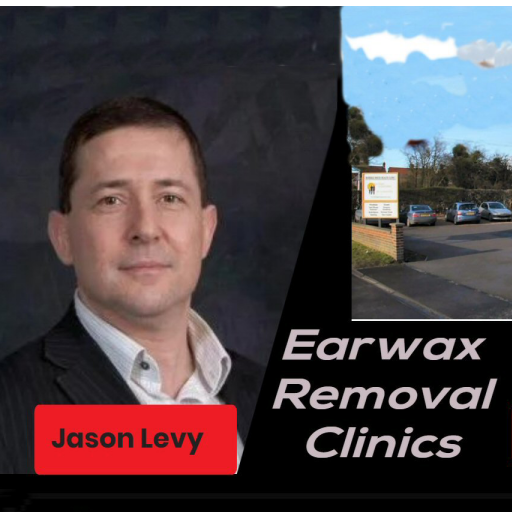
How Do I Treat Earwax and Tinnitus?
Some skin conditions, such as psoriasis and eczema, can affect the ear. Psoriasis is an inflammatory disease that causes raised plaques on the skin that may itch, sting or burn. Eczema is a group of conditions that cause itchy, inflamed patches of skin. Ear eczema can cause dry, scaly skin around the ear canal, as well as swelling. The ear canal can become blocked by swelling, pus, earwax and foreign bodies.
Although earwax is a useful substance in the ear, it may need to be removed in some situations. Sometimes earwax cannot drain. It gets stuck in the ear canal and therefore prevents the transmission of sound. For this reason, earwax removal is one of the most frequently performed procedures.
Microsuction earwax removal is the most common form of earwax removal. This form of earwax removal is the safest and least traumatic method because it does not injure underlying pathology such as a perforated eardrum that may be underneath the earwax. When removing earwax manually, it is important to use soft materials so as not to damage delicate parts of the ear, such as the eardrum.
The best way to prepare for microsuction is to apply drops of olive oil (yes, the same product you'll find in the spice aisle of any supermarket; any common variety will do), 2-3 drops three times a day in the affected ear for 1-2 weeks prior to treatment. The olive oil will not irritate the ear canal and will gradually soften the earwax so that it can be removed.
Hard earwax is often difficult or impossible to remove, which is why it is so important to soften it properly beforehand. However, you should never try putting olive oil drops in your ear until a specialist has confirmed for certain that earwax is really the cause of your blocked ear, if you have an undiagnosed perforated eardrum and end up pouring olive oil drops through the perforation into the middle ear cavity, this would be damaging to your hearing.
If you have a blocked ear, do not put olive oil drops in your ear until a doctor or nurse has confirmed that olive oil drops are the cause of your blocked ear.
If the blockage is larger due to earwax, it may need to be removed at the doctor's office. Doctors usually use one of two methods to remove earwax: a common method is curettage, which uses a curette. A curette is a long, curved tool that is used with suction to gently scrape earwax from the ear canal and remove the blockage.
What causes tinnitus?
Hearing loud, irritating noises can be annoying, but when caused by tinnitus, they can seriously affect a person's quality of life. Tinnitus (ipa pronunciation: [tj'najtys] or ['tjnjtys], from Latin "tinnitus") is the perception of sounds in the human ear in the absence of corresponding external sounds.
Tinnitus can be felt in one or both ears or in the head. It is usually described as a ringing, but in some patients it takes the form of a high-pitched whistling, buzzing, hissing, humming, buzzing or hissing sound, or as a ticking, clicking, roaring, "crickets" or "grasshoppers", melodies, songs or whistling. It is also described as a "whooshing" sound, like wind or waves. About 15 per cent of people suffer from tinnitus at some point, and it is most likely to occur from the age of 60 onwards.
Usually tinnitus is caused by damage to the tiny microscopic nerve endings of the auditory nerve in one's inner ear. The health of these nerve endings is important for hearing, and damage to them causes hearing loss and often tinnitus. If you are older, advancing age is often accompanied by some degree of hearing nerve damage and tinnitus.
If you are young, loud noise pollution is probably the main cause of tinnitus, which often also damages hearing. There are many causes of "subjective tinnitus", noise that only you can hear. Some causes are not serious (a small wax plug in the ear canal can cause temporary tinnitus). Tinnitus can also be a symptom of middle ear bone stiffness (otosclerosis)
Tinnitus symptoms
With tinnitus, you simply hear a noise that no one else around you hears. This noise is usually a ringing or buzzing sound, but it can also be a clicking or hissing sound that accompanies your heartbeat. Sometimes the noise is accompanied by hearing loss and dizziness, which is called Meniere's disease. In addition to the sounds associated with tinnitus, other symptoms may accompany it. These include:
* Dizziness
* Pain in the ear
* A feeling of fullness in the ears
* Headache
How is tinnitus diagnosed?
People with tinnitus should be seen by a doctor who specialises in ear disorders, usually an otologist or neurotologist. Why is my tinnitus worse at night? During the day, tinnitus becomes less noticeable due to distractions from the activities and sounds around you. If the environment is quiet, tinnitus may seem louder and more constant. Fatigue can also make tinnitus worse.
Is tinnitus a common problem?
Yes. Almost everyone has experienced brief episodes of light ringing or other noises in the ear. For some people, tinnitus is more annoying and permanent. One third of adults say they have experienced tinnitus at some point in their lives.
How can tinnitus be treated?
After a thorough examination, your doctor may find an identifiable cause and treat the tinnitus or make treatment recommendations. After a thorough examination, an essential part of treatment is your own understanding of your tinnitus, i.e. the cause and treatment options.
In many cases, there is no specific treatment for tinnitus. It may go away on its own, or it may be a permanent disability that the patient "has to live with". Some audiologists have recommended nicotinic acid for the treatment of tinnitus. However, there is no scientific evidence that nicotinic acid helps with tinnitus.
read more →